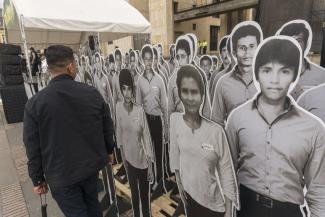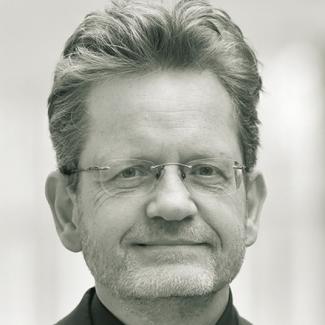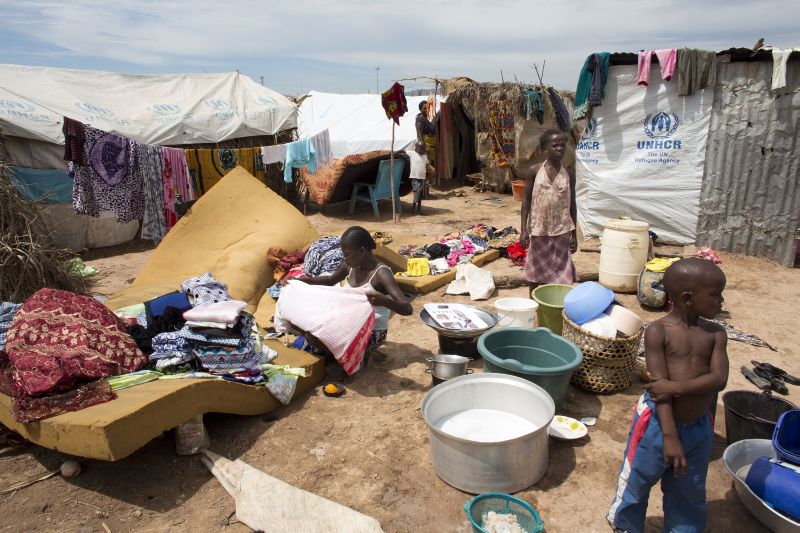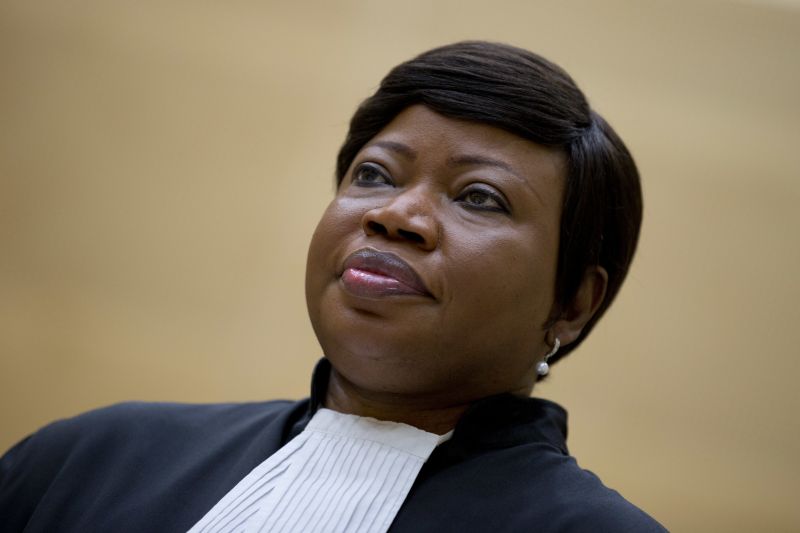Criminal justice
Limited reach

Cases before the ICC often drag on for a long time and then end with acquittals. Civil-society organisations and the media express criticism of the court. Is it fulfilling its mission?
Yes, the ICC is doing reasonably well given the difficult circumstances, but the expectations tend to be too high. The ICC considers individual cases and must find out whether a suspected person can indeed be proven to be responsible for an atrocious crime. The cases take a long time because the investigations take place in very difficult settings and the corroboration of evidence is a complex challenge. The criminal responsibility of the person concerned must be proven. It is important to involve victims in proceedings, and their personal satisfaction certainly matters, but the focus is on the accused person’s possible individual responsibility and guilt. An acquittal neither denies that there was a crime nor that victims have suffered. It only means that the judges are not convinced beyond a reasonable doubt of the accused’s individual responsibility.
It seems rather unsatisfying when someone like Jean-Pierre Bemba, who was convicted for war crimes in the Central African Republic after a long trial, is later acquitted by the Appeals Chamber.
When things like this happen, the victims and their relatives are obviously disappointed, but that does not mean that this particular acquittal was wrong. The Bemba decision was very close (three to two) and mostly based on procedural technicalities. Ultimately, the Appeals Chamber insisted on more convincing evidence for the crimes allegedly committed by the subordinates. One can certainly debate whether the Chamber asked too much, but the basis of any such debate is what is in the official Court records. It is impossible to assess that from outside. Even specialised lawyers cannot do so unless they attended each and every hearing. In a criminal case, the judgment results from what the judges learned from the evidence presented in front of them in an oral and adversarial fashion. People who have not followed that lack fundamental information and thus are not really qualified to comment. Sometimes, journalists observe a case from beginning to the end, and their impressions and insights can indeed be relevant. Without such an intimate knowledge, however, it is extremely difficult to decide whether a man like Bemba, as a military commander, could and should have intervened in a specific situation to prevent certain crimes. Unfortunately, civil-society activists and the media tend to simplify things excessively and to demonise the accused.
But the ICC is supposed to prevent impunity after the atrocities, and acquittals don’t do that.
Not all cases end with an acquittal. Thomas Lubanga and Germain Katanga were sentenced for crimes they committed during the civil war in the Democratic Republic of the Congo. In legal terms, it would be totally unacceptable to convict an accused person so that someone is punished. The job of the ICC is not different from that of any other criminal court. It must decide whether the specific accused is guilty or not. It must do so in a fair trial, relying on means that conform with the rule of law. It thus reduces, but of course cannot eliminate, the previously almost unlimited impunity of despotic leaders and militia commanders. The ICC is merely one component of an international system of criminal justice, and the main caseload rests with the domestic courts where the crimes were committed. We shouldn’t forget, moreover, that the reach and impact of criminal law is limited when it comes to societies coming to terms with atrocities. It must be complemented by other mechanisms, such as truth and reconciliation commissions for example.
In the recent criminal trial of the neo-Nazi NSU terrorists in Germany, many issues were not resolved either. Relevant questions included whether the police had failed and what role the Verfassungsschutz, Germany’s secret service, played. Its agents had obviously been in touch with terrorists in several instances, but they hardly submitted any useful evidence. Victims’ lawyers spoke of “institutionalised” racism and “state failure”.
Yes, and these are all relevant issues, but they go beyond the limited tasks and functions of criminal justice. Munich’s Higher Regional Court had to decide whether Beate Zschäpe and the other accused were guilty or not. Such a narrow focus cannot really satisfy all possible needs of victims. Zschäpe was found guilty, but for a society to come to terms with brutal violence, more is needed than criminal prosecutions. This is why the approach that Colombia is taking to building peace after decades of civil war can serve as a model. It includes a criminal justice component, the Special Jurisdiction for Peace, that can sentence perpetrators up to 20 years. But the Colombian transitional justice system has several further components, especially a truth commission that is dealing with the historical narrative, developing a shared understanding of recent history. On top of that, the system has coherent national mechanisms for compensating victims and even a special unit for disappeared persons. This is a holistic approach, with the various components reinforcing one another.
Iván Duque, Colombia’s new president, has declared himself an opponent of the peace agreement. Has the peace process been institutionalised in a way that is strong enough to last?
Well, President Duque has actually made a commitment to the peace agreement and the said transitional justice system in principle. He wants to make some changes, but he does not have the legislative majorities to pass radical reforms or even abolish the system.
You just emphasised the national character of Colombia’s system for transitional justice. Do international courts have the same credibility as national ones?
The acceptance of international tribunals and courts is indeed a serious issue. Outreach programmes are designed to reduce the distance from the places where crimes are committed, but that is only possible to a limited extent. That was true of the International Criminal Tribunal for the former Yugoslavia, which the UN set up in the early 1990s and which is currently wrapping up its work. There was a tendency of Croatians resenting judgments against Croatian war criminals, whereas Serbs resented judgments against Serbs. Because of such ethnic sentiments, national or regional tribunals are often more convincing. Just consider that the Nuremberg trials of Nazi criminals did not find much acceptance in Germany shortly after the Second World War. Today, the Nuremberg Academy is quite successful in promoting international justice and the underlying principles, but it was only established in 2014. The problem with national courts, on the other hand, is that they are not entirely independent and may become toys for powerful political interests to play with. In any case, it makes very good sense that nation states bear the main responsibility for criminal justice and the ICC only has jurisdiction if they are either unable or unwilling to investigate and prosecute.
How do you assess the criticism expressed by African leaders who say that the ICC is only serving imperialist interests and is biased against Africa?
If leaders like the late Muammar al-Gaddafi, Sudan’s President Omar al-Bashir or Kenya’s President Uhuru Kenyatta say these things, they are obviously not being objective and overstating matters. They are involved personally. People like them deny facts and invent alternative ones. They won’t even take into account that many ICC staff members are from sub-Saharan Africa, including top officials like the Chief Prosecutor Fatou Bensouda (Gambia), the Court’s President Chile Eboe-Osuji (Nigeria) and his deputy Joyce Aluoch (Kenya). It is not hard to see what is driving the African politicians concerned: they fear the court, so they discredit it. Their criticism does not really merit serious debate, but it does unfortunately have an impact on some people and in some countries. For this reason, it is good that the ICC has responded, not least by starting to take a closer look at other world regions. In this context, the investigations of crimes in Georgia deserve to be mentioned, as well as preliminary examinations concerning Iraq/UK, Colombia, Palestine/Gaza, Ukraine and Venezuela.
Kai Ambos is a professor of criminal law, procedure, international criminal law and comparative law at Göttingen University, a judge of the Hague-based Kosovo Specialist Chambers and an amicus curiae of Colombia’s Special Jurisdiction for Peace. He is also the director of CEDPAL, a Göttingen-based research facility for criminal law and justice in Latin America.
kambos@gwdg.de












